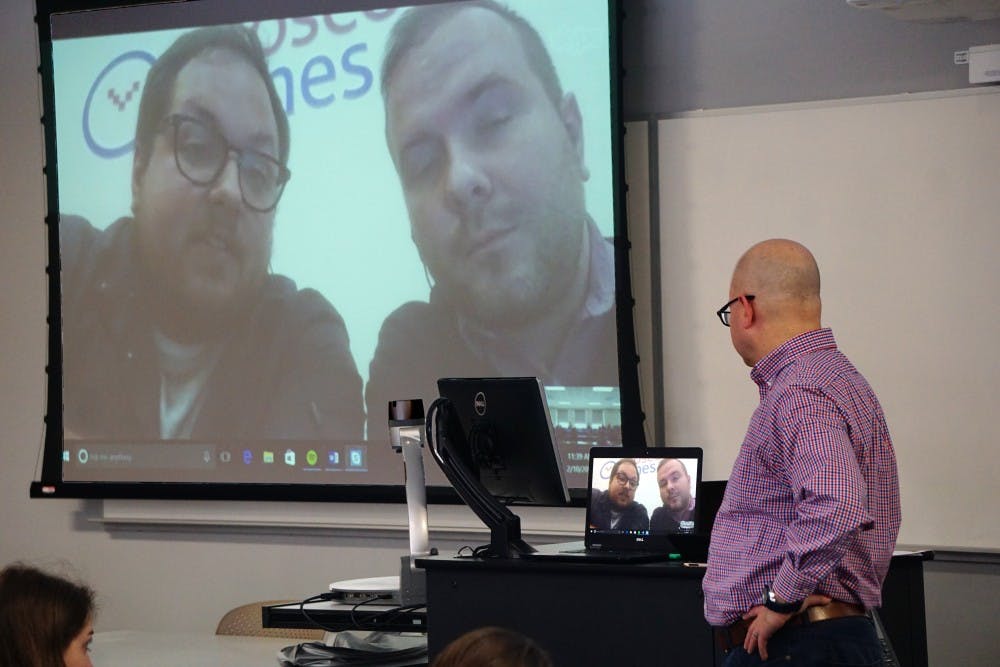Students and faculty gathered in the center of Harrison room 204, focused on two screens projecting a Skype session with Miami University alumnus and Moscow Times journalist, Matt Bodner, and his colleague, Alexey Kovalev, on Friday, Feb. 10.
Bodner arranged the cross-continental chat with his former professor, interim director of the Havighurst Center for Russian and Post-Soviet Studies, Stephen Norris.
Before the lecture, Norris sent attendees a few stories recently written by Kovalev.
"One [article] in particular from The Guardian has gotten a lot of press lately about how covering Putin for years helps [Kovalev] or other journalists cover Trump," Norris said of Kovalev's recent column, "I've reported on Putin -- here are my tips for journalists dealing with Trump."
Bodner and Kovalev spoke to the group about the Russian propaganda machine and some of the similarities between Russian president Vladimir Putin and U.S. president Donald Trump's administrations.
Kovalev compared Putin's emblazoned public statements to Trump's continuous string of tweets.
However, he cautioned both reporters and citizens to be wary of "falling for the chat." He argued that people spend too much time following what an official says in response to a probing question rather than the question itself.
"The other day the spokesperson for the largest oil and gas company in Russia literally told the reporter who called in for comment to screw themselves," Kovalev said. "People were tweeting their jokes and memes, but in the process everybody kind of forgot what the question really was. And I can see this occurring in America right now."
Kovalev spoke animatedly about a theory he dubbed "double tap tactics" in which the Russian government distracts the public with one shocking bill, while a dangerous piece of legislation they actually intend to pass flies under the radar.
"[The Duma] files two bills, one is simply outrageous and everybody goes out to the streets and writes petitions and is raging and fuming on Twitter," Kovalev said. "After a while, maybe two weeks, the government rolls back the outrageous bill by 20 percent and they get 100 percent of what they actually intended in the first place. Meanwhile [when] everyone was busy obsessing over the first bill, a second bill, much more subtle, but much more dangerous passes in all three readings in one day."
This "double tap tactics" approach happens all the time when it comes to passing Russian legislation.
Kovalev cited an example in which the first bill -- a series of extreme regulations regarding the Russian Internet -- led to huge protests and public outcry, while the second bill went unchallenged and led to the privatization of the country's national parks.
Enjoy what you're reading?
Signup for our newsletter
Both Bodner and Kovalev have seen some absurd abuses of power while covering politics and Putin for the Moscow Times, but what scares them the most is how complacent people become in complaining yet not following up or trying to hold the government accountable.
"Whenever you see a huge cloud of public outrage try to look past it," Kovalev said. "Because there's probably something much more important going on behind this cloud"




